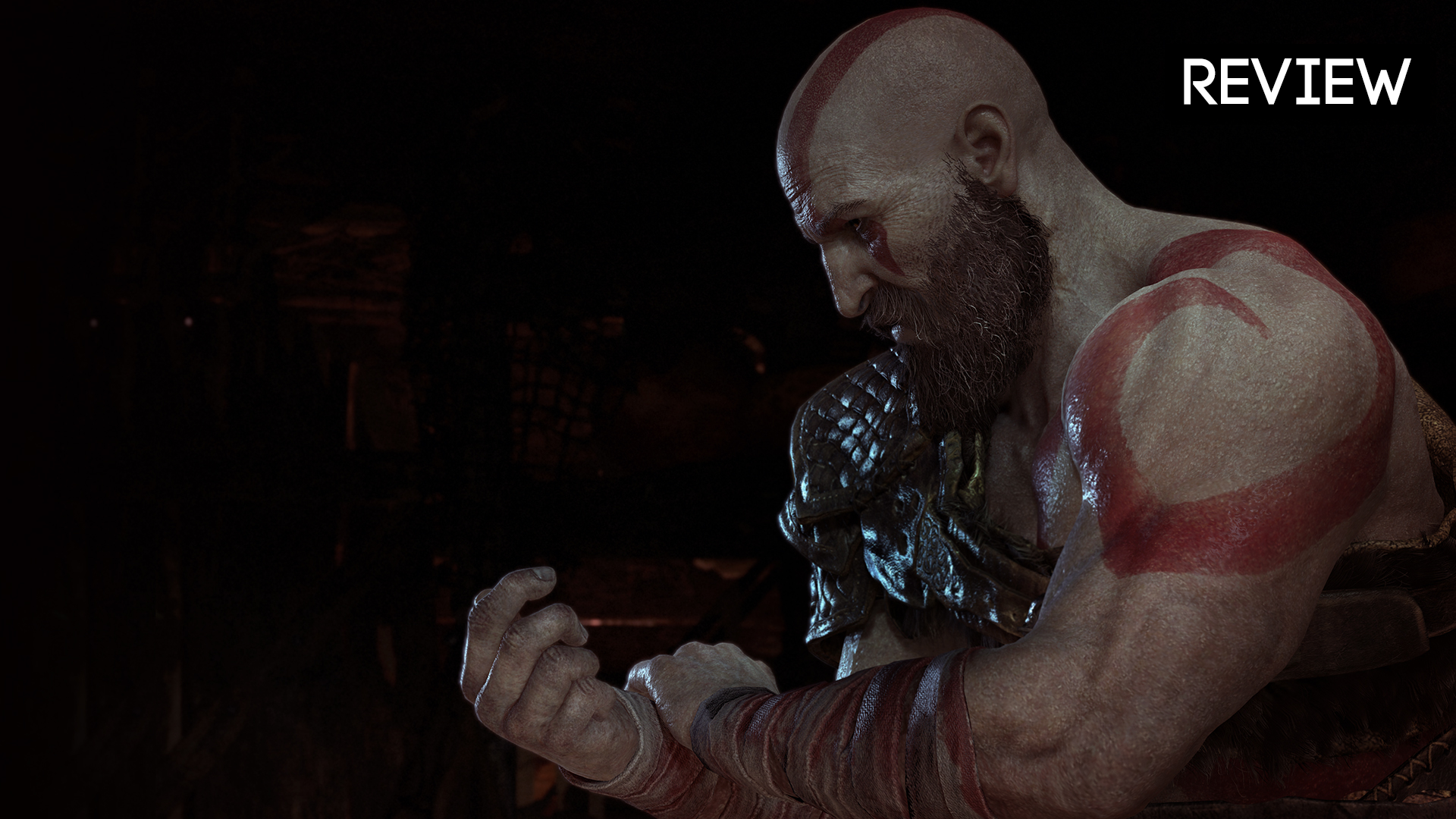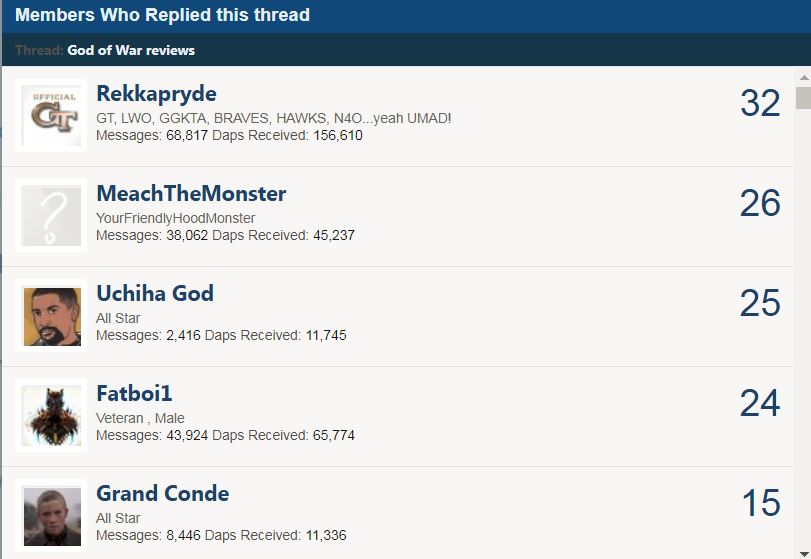This is a great article. Maturely written. Leave the stannery at the door.
--------------
God Of War Is A Great Example Of The Difference Between Sony And Microsoft
Alex Walker
Apr 13, 2018, 12:00pm

Almost a year ago, Xbox's Phil Spencer was doing the media rounds talking about the future of Xbox. The problem: the business model for game development was changing. Singleplayer, story-first adventures were just as important - but it was harder to justify funding them.
In part, that's what Xbox Game Pass was designed to help against. By having a subscription offering, users wouldn't have to pay upfront for a title. In turn, Microsoft could better fund not just the next
Forza or
Sea of Thieves, but the next grand singleplayer story.
It makes sense in a lot of ways, especially since it's not original. HBO and Netflix have done it for years; Spencer even specifically mentioned wanting to create a "Netflix for games".
But game development takes a while. And one year on from the release of the Xbox Game Pass, the grand subscription model is still mostly filled with smaller indies, remakes, and the odd blockbuster:
Rise of the Tomb Raider, which launched on the Xbox One three years ago;
Sea of Thieves; the
Halo Wars games; the underwhelming
ReCore; and the acquired taste of
Gears of War 4.
None of these are "killer apps", the sort of games that moves consoles.
Sea of Thieves did provide plenty of users a chance to sign up for a monthly subscription instead of paying $70 or more upfront, which is great for those who are sticking
through the dearth of content.
On the other hand, there's Sony. They're still walking down a very traditional path, making bets on new hardware (PSVR) and continuing to fund huge, singleplayer experiences that most players only playthrough once or twice. Games that don't have microtransactions, or models that allow for the fast and easy production of DLC.
From a business perspective, Sony's position seems incredibly risky.

Image: Supplied
Rebooting something like
God of War was always a mammoth risk, given what the series was built around. Kratos was a difficult character to like: the solution to all his problems often creates more issues than they solve, with his unabated rage resulting in the death of his family, his father, Athena, and the countless death of who knows how many after the entirety of Greece gets flooded.
On top of that, quicktime events aren't everyone's cup of tea.
God of War 3 was a rare instance of good QTE's - but it's not a model that gamers would have appreciated in 2018.
And can you imagine how the internet would have reacted today to locked camera angles?
So an awful lot had to be thrown out. The end result, as Chris wrote in his review, was a game that ended up being a little bit of everything: part
Last of Us, part
Dark Souls dodging, part
Witcher. The blend of ideas works, even if many of them come from other franchises.

God Of War: The Kotaku Review
There's a telling scene very early on in the new God of War, in the denouement of an exhausting battle sequence that ends with Kratos and his young son Atreus taking down a massive troll.
Read more
But the bigger theme at play here is the fact that Sony are funding these large open-world, story-driven games at all. And it's not like this is some kind of aberration. Even if you discount Naughty Dog as a one-off, special case that any publisher would love to have, there's still plenty of investment into narrative experiences elsewhere.
Detroit: Become Human lands next month. The new
Spider-Man looks fantastic so far. Kiryu's story wrapped up recently with
Yakuza 6, even if SEGA released the whole game for free by accident. And given the response to
Crash Bandicoot's re-release last year, it's hard to imagine there won't be a similar level of interest in the
Spyro trilogy.
Sony doesn't directly fund all of these games, of course. But five years on from the launch of the current generation, and even after the mid-generation refresh, it's fascinating to see how the strategies of the two companies are playing out.

Sony is still taking bets - massive bets - on grand adventures that might not pan out.
Crackdown 3 and
Sea of Thieves aren't cheap to make either, but there's more leeway too. They can have a smaller playerbase and be OK financially, not only thanks to microtransactions, but because there's a platform for players to build their own content, entertaining themselves outside of the whims of the developer.
Part of the problem, of course, is that Microsoft has been playing catch-up since 2013. Success begets success: when you have more money to play with, you've got more leeway to bet on things that might not work out.
And it's easy to forget just how many first-party studios Sony actually has. Ignoring their XDev department that collaborates with developers, Sony has teams like Guerilla Games. Polyphony Digital. Naughty Dog. Santa Monica. San Diego. Sucker Punch. Their London team. Their PSVR studio in England. Media Molecule (also in the UK). Their Japan studio. Bend (makers of
Days Gone).
Microsoft has Mojang. Rare. 343 and their efforts on
Halo. The Coalition and the
Gearsfranchise. And then there's Turn 10 and the
Forza games.
It's not even close to a level playing field.

Image: Sea of Thieves
So when you see comments decrying the lack of exclusives on the Xbox compared to the PS4, it's really ignoring the reality: the Xbox
can't have more exclusives than the PS4. There's just not enough developers.
That's not a huge problem though, because nobody has enough time in the day to play every new game. And Microsoft's strategy seems a hell of a lot smarter when you look three, four, five years down the road. An Xbox owner might only ever have to buy one game a year, simply paying $10.95 a month to access anything else they feel like paying on a whim.
But what matters for gamers
right now are those one or two games that make you stop and go, "shyt, I need to play this."
And every now and again that game happens to be a multiplayer blockbuster, something all your friends are playing.
PUBG and
Fortnite fill that void right now.
Halo was a big drawcard for that very same reason.
But a lot of the time, those games are grand adventures, stories and worlds that you can lose yourself in. They're experiences you haven't had before. They're not experiences you create yourself. They're someone else's world, something that pulls you out of the monotony of day-to-day life.
And despite the increasingly difficult leaps of faith required, Sony has continued pushing those games forward. Kratos redeeming himself as a father. Aloy redeeming herself to her tribe. Drake rebuilding his relationship with Sam, and saving his relationship with Elena. Games you might only play once, but you'll remember for years, if not forever.
Time and time again, that's what people buy a console for. And while Microsoft's strategy makes perfect sense, consoles aren't always a sensible purchase. It's often emotional, impulsive, driven by the need to follow a hero. A character you want to believe in. A journey.
Journeys like
God of War.
----------
Closely related tweet
^^^
I disagree, Sony been starting strong since the PS2 gen.













